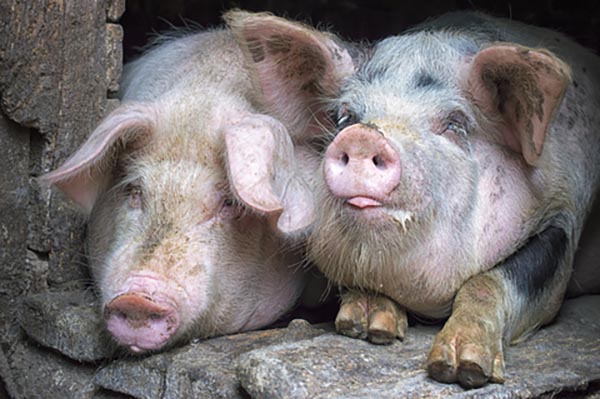Scientists have identified a gene facilitating the pig’s recovery after infection with the ASF virus

This discovery could be used to breed pigs with stronger immune responses or resistance to ASF, the Swedish investigators says
Researchers from the Swedish University of Agricultural Sciences and the Pirbright Institute said they have identified a gene that appears to help pigs recover from ASF infection and can be used to breed more resilient livestock.

An article published in Scientific Reports reportes that researchers infected 17 pigs – specially bred with minimal genetic abnormalities that can interfere with scientific experiments – with a highly virulent strain of the ASF virus.
Although all 17 pigs were genetically similar, those who survived the infection had a small mutation in one gene called ACOX3, which can affect the interaction of other genes with the virus and provide some resistance to ASF.
This does not mean that pig farmers should immediately start breeding with an eye to this gene, says Dirk-Jan de Koning, a professor of animal husbandry at the Swedish University of Agricultural Sciences. According to him, scientists were able to identify the genes of interest to them only in the last year of a long-term study of ASF and lumpy skin disease, so they did not have the time and resources to continue research, except to establish an initial link.
According to Koning, scientists will not only have to confirm the preliminary results, but also establish whether mutational selection can lead to undesirable side effects. The genes they are interested in cause increased sensitivity to heat stress and an increased incidence of certain cancers in other biological species, but there are very few such studies.
Although there is a possibility that the isolated gene could lead to pig breeding or even gene editing in pigs to increase their resistance to ASF, Koning believes that science still has a long way to go before that happens.
"There is a lot of fundamental research that needs to be done to advance in this area, but we were very excited to find this gene," he said.
According to Koning, the surviving pigs involved in the study also received a dose of the experimental ASF vaccine before the researchers infected them with the virus. Attempts to develop an ASF vaccine are unsuccessful at best, for example, vaccinated animals often continue to get sick and can spread the virus. But although the pigs involved in the study got sick, those with the ACOX3 mutation survived. According to Koning, this discovery may eventually tell us more about how vaccines trigger an immune response, which may lead to the development of a more effective vaccine against the virus.
ASF or breeding of animals that respond more favorably to vaccines.
"We are starting to lift the veil over potential genes or genetic processes that may be associated with the recovery of the body after vaccination," he said.
SOURCE: emeat